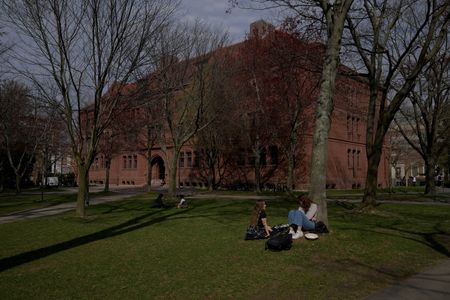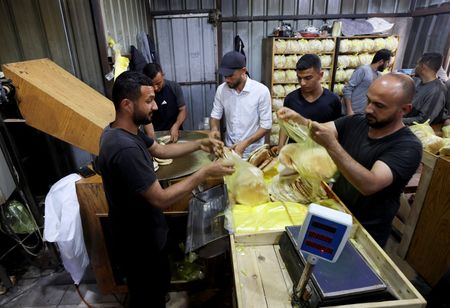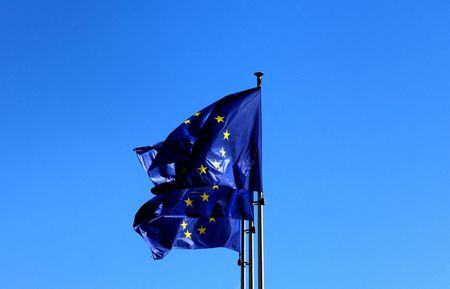FRANKFURT (Reuters) -The German economy is likely to stagnate again this quarter as U.S. tariffs curb exports while Berlin’s new spending plans won’t support growth until next year, the Bundesbank said on Thursday.
Global trade tensions are adding to long-standing problems in Germany such as high energy prices and an industry that struggles to keep pace with foreign competitors, even in areas where it used to excel such as cars.
“Various burdens persist, and the U.S. government’s tightened tariff policy is creating additional headwinds,” the German central bank said in its monthly report.
“This is particularly affecting the export industry, which is already struggling with a difficult competitive position and weak demand.”
It added that the start to the second quarter was likely to have been “still good”, citing an increase in the number of cars produced in April compared with the previous quarter, but the outlook was worsening.
The Bundesbank said measures contained in the new government’s coalition agreement, such as more infrastructure spending, were likely to support the economy in the future but not before next year.
The German central bank welcomed measures aimed at attracting corporate investments such as a planned tax incentive and reduced supply-chain due diligence, but it lamented the lack of a “coherent overall concept for the energy transition”.
(Reporting By Francesco Canepa)








